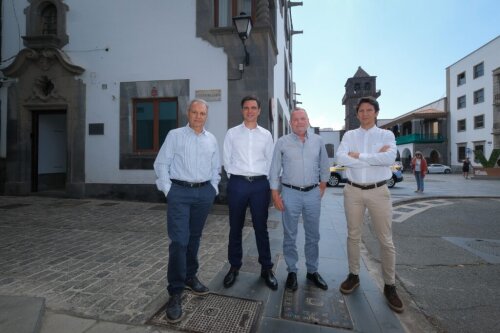Best Project Finance Lawyers in Spain
Share your needs with us, get contacted by law firms.
Free. Takes 2 min.
Or refine your search by selecting a city:
List of the best lawyers in Spain
About Project Finance Law in Spain
Project Finance in Spain refers to a complex legal and financial structure used primarily for large-scale infrastructure and industrial projects, such as energy plants, transportation systems, or water treatment facilities. Instead of relying on the general balance sheet of project sponsors, funding is secured mainly by the future cash flows generated by the project itself. The distinctiveness of Spanish Project Finance law lies in its sophisticated regulatory framework, robust financial institutions, and consistent adaptation to European Union directives. This financing method often involves a mix of lenders, equity investors, public authorities, and multiple contractual arrangements to address risks and secure project completion.
Why You May Need a Lawyer
Engaging an experienced lawyer in Project Finance is crucial for navigating the intricate legal landscape and achieving successful project outcomes. Here are some scenarios where legal expertise becomes essential:
- Structuring project finance agreements and assessing liability among parties
- Drafting, reviewing, and negotiating complex contracts, including EPC (Engineering, Procurement and Construction) and O&M (Operation and Maintenance) agreements
- Ensuring compliance with Spanish laws and EU regulations regarding permits, zoning, and environmental standards
- Addressing cross-border legal challenges when international stakeholders are involved
- Securing government approvals and managing public-private partnership (PPP) requirements
- Advising on taxation, risk allocation, and security packages for lenders and investors
- Handling disputes or renegotiations during the life of the project
Local Laws Overview
Project Finance in Spain is primarily shaped by national regulations, complemented by EU directives and occasional regional norms. Key legal aspects to consider include:
- Contractual freedom is upheld, but contracts must comply with the Spanish Civil Code and Commercial Code
- Public works and infrastructure projects often invoke the Public Sector Contracts Law (Ley de Contratos del Sector Público), which imposes strict transparency, procurement, and tendering rules
- Environmental legislation, such as the Environmental Impact Assessment Law, applies to most infrastructure projects and can affect timelines and requirements
- Security and collateral are regulated under Spanish property and registry laws, particularly regarding mortgages, pledges, and assignment of receivables for securing project loans
- Permitting and licensing are mandatory before project commencement, conducted under both national and regional authorities
- Cross-border financing must adhere to anti-money laundering (AML) obligations and reporting requirements
- Dispute resolution is often governed by local courts, but international arbitration is commonly used in agreements with foreign stakeholders
Frequently Asked Questions
What is Project Finance?
Project Finance is a funding method where lenders mainly rely on the revenue generated by a specific project as the primary repayment source, rather than the general assets or creditworthiness of project sponsors.
Which types of projects typically use Project Finance in Spain?
It is commonly used for infrastructure and large-scale projects, including renewable energy plants, highways, ports, airports, water supply systems, and waste management facilities.
What role does the Spanish government play in Project Finance?
The government may act as a grantor, regulator, or even co-investor in public-private partnership projects, providing approvals, concessions, or guarantees to facilitate the financing.
What are the main agreements involved in Project Finance?
Key documents include the loan agreement, security documents, direct agreements, EPC and O&M contracts, shareholder agreements, and insurance policies.
How are risks managed in Project Finance deals?
Risks such as construction, operation, financial, legal, environmental, and political risks are allocated among parties through detailed contracts and often mitigated by insurance and guarantees.
Are there regulatory requirements for foreign investors?
Yes, foreign investors must comply with local licensing, anti-money laundering regulations, and sometimes need to notify or obtain approval from Spanish authorities, especially for strategic sectors.
Can projects be financed in foreign currencies?
Yes, but there are considerations regarding currency risk and compliance with Spanish and EU financial regulations.
What is the typical duration for a Project Finance transaction in Spain?
Project Finance arrangements usually span the entire lifecycle of the project, often from 5 to 30 years, depending on project type and agreements.
How can disputes be resolved in Project Finance projects?
Disputes may be resolved via Spanish courts or, more commonly in international settings, through arbitration clauses set in the underlying agreements.
What costs are involved in engaging legal help for Project Finance?
Costs vary based on project size and complexity, typically including hourly legal fees, due diligence expenses, contract negotiation, and sometimes notary and registry costs.
Additional Resources
Several institutions and resources can provide further guidance on Project Finance in Spain:
- Ministry of Industry, Commerce and Tourism (Ministerio de Industria, Comercio y Turismo): For permits, authorizations, and investment regulations
- Official State Gazette (Boletín Oficial del Estado): For up-to-date laws and regulations
- Spanish Association of Project Finance (Asociación Española de Financiación de Proyectos): Professional network and technical publications
- Chambers of Commerce: Local advisory services for investors and developers
- Spanish Banking Association (Asociación Española de Banca): Guidance on banking standards in project finance
Next Steps
If you are considering a Project Finance arrangement in Spain or face related legal challenges, take the following actions:
- Define your project’s scope, objectives, and financing needs
- Gather all relevant documents, such as initial project plans, permits, and business models
- Seek a specialized Project Finance lawyer with experience in Spanish and international financing structures
- Discuss your project details, potential risks, and compliance requirements with your lawyer
- Work with your legal advisor to draft, review, and negotiate contracts with all stakeholders
- Stay informed about regulatory updates that may impact your project
- Be proactive about resolving issues early to avoid delays and increased costs
Qualified legal help will not only streamline your project’s development but also provide peace of mind regarding risk management, compliance, and long-term success.
Lawzana helps you find the best lawyers and law firms in Spain through a curated and pre-screened list of qualified legal professionals. Our platform offers rankings and detailed profiles of attorneys and law firms, allowing you to compare based on practice areas, including Project Finance, experience, and client feedback.
Each profile includes a description of the firm's areas of practice, client reviews, team members and partners, year of establishment, spoken languages, office locations, contact information, social media presence, and any published articles or resources. Most firms on our platform speak English and are experienced in both local and international legal matters.
Get a quote from top-rated law firms in Spain — quickly, securely, and without unnecessary hassle.
Disclaimer:
The information provided on this page is for general informational purposes only and does not constitute legal advice. While we strive to ensure the accuracy and relevance of the content, legal information may change over time, and interpretations of the law can vary. You should always consult with a qualified legal professional for advice specific to your situation.
We disclaim all liability for actions taken or not taken based on the content of this page. If you believe any information is incorrect or outdated, please contact us, and we will review and update it where appropriate.
Browse project finance law firms by city in Spain
Refine your search by selecting a city.














